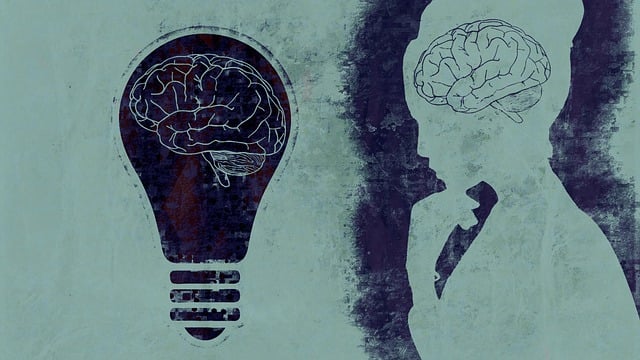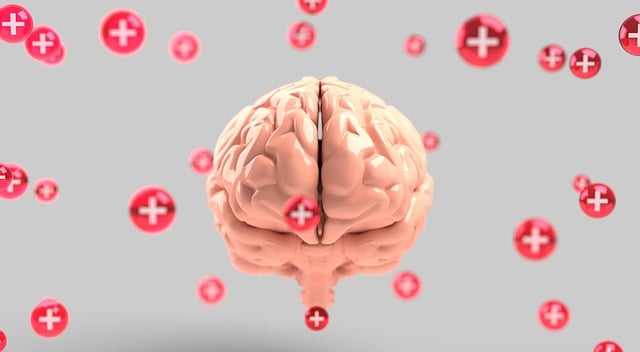Crisis intervention tailored for young adults focuses on immediate support during stressful or traumatic events, addressing identity formation, academic pressures, and mental health issues like anxiety and depression. Core principles emphasize Mind Over Matter, utilizing positive thinking and cognitive reframing to build resilience. Therapists create safe spaces, teaching mindfulness practices, cognitive-behavioral techniques, conflict resolution skills, and burnout prevention strategies. By combining these approaches, therapy creates a supportive environment for effective stress management in young adults.
In times of crisis, effective intervention can make a significant difference in the lives of young adults. This article provides essential guidance on understanding and implementing crisis intervention strategies tailored for this demographic. We explore key concepts such as stress management techniques within therapy settings, offering practical tips and tools to help professionals navigate challenging situations. By delving into these strategies, mental health practitioners can enhance their ability to support young adults during stressful crises, promoting healthier outcomes.
- Understanding Crisis Intervention for Young Adults
- Strategies for Effective Stress Management in Therapy
- Practical Tips and Tools for Implementing Crisis Intervention Techniques
Understanding Crisis Intervention for Young Adults

Crisis intervention for young adults is a specialized approach aimed at providing immediate support and guidance during periods of intense stress or traumatic events. It recognizes that adolescence and early adulthood are critical phases where individuals navigate identity formation, academic pressures, interpersonal relationships, and often face mental health challenges like anxiety, depression, or substance abuse.
The core principles of therapy for young adults in crisis intervention emphasize the importance of Mind Over Matter—using positive thinking and cognitive reframing to challenge negative thought patterns. This strategy empowers young people to develop resilience and coping mechanisms that can prevent depression and promote better stress management. By fostering a safe, non-judgmental environment, therapists help individuals navigate their emotions, understand underlying causes of distress, and acquire skills to effectively manage future crises.
Strategies for Effective Stress Management in Therapy

Managing stress is a cornerstone of effective therapy for young adults. Therapists can help clients develop personal strategies for stress reduction tailored to their unique needs and experiences. This might involve teaching mindfulness practices, such as meditation or deep breathing exercises, which have been proven to reduce anxiety and promote emotional regulation. Additionally, cognitive-behavioral techniques are employed to challenge negative thought patterns contributing to stress and replace them with healthier perspectives.
Incorporating conflict resolution techniques can also be valuable in therapy. Young adults often face interpersonal stressors that lead to heightened anxiety and distress. Learning constructive ways to navigate conflicts, communicate effectively, and resolve disagreements can significantly enhance their ability to manage stress. Furthermore, burnout prevention strategies for healthcare providers are relevant here, as therapists themselves must maintain well-being to offer optimal support to their clients. By prioritizing self-care, setting boundaries, and adopting healthy coping mechanisms, therapists can model effective stress management, fostering a safer and more supportive therapeutic environment.
Practical Tips and Tools for Implementing Crisis Intervention Techniques

Implementing crisis intervention techniques effectively requires a combination of practical tips and tools tailored to young adults seeking therapy. Firstly, establish a safe and non-judgmental environment where individuals feel comfortable sharing their experiences. Active listening skills are paramount; demonstrate empathy and validate their emotions, fostering trust and encouraging open communication. Simple yet powerful tools like deep breathing exercises can help de-escalate intense situations by promoting relaxation and mindfulness, which is especially beneficial for stress management.
Integrate evidence-based strategies such as cognitive-behavioural therapy (CBT) techniques to challenge negative thought patterns contributing to crises. Encourage the use of positive affirmations and reframing techniques to boost confidence and build resilience against burnout prevention. Leveraging technology through mental health apps can also provide accessible resources for between-session support, reinforcing key concepts like Mind Over Matter principles in everyday life.
In conclusion, crisis intervention strategies play a vital role in supporting young adults navigating stressful situations. By combining an understanding of crisis intervention with effective stress management techniques in therapy, professionals can empower individuals to cope and recover. Implementing practical tools and guidance ensures that young adults receive the necessary care to manage crises and promote long-term mental well-being, especially in the context of therapy for young adults and stress management.














